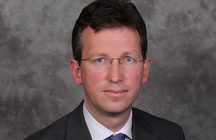Jeremy Wright – 2019 Statement on Online Pornography Age Verification
Below is the text of the speech made by Jeremy Wright, the Secretary of State for Digital, Culture, Media and Sport, in the House of Commons on 20 June 2019.
With permission, Mr Speaker, I would like to make a statement. As the House knows, the Government announced that age verification for online pornography, under the Digital Economy Act 2017, would come into force on 15 July 2019. It has come to my attention in recent days that an important notification process was not undertaken for an element of this policy, and I regret to say that that will delay the commencement date. I wanted to take the opportunity to come to the House as soon as possible to apologise for the mistake that has been made and to explain its implications.
In autumn last year, we laid three instruments before the House for approval. One of them—the guidance on age verification arrangements—sets out standards that companies need to comply with. That should have been notified to the European Commission, in line with the technical standards and regulations directive, and it was not. Upon learning of that administrative oversight, I instructed my Department to notify this guidance to the EU and re-lay the guidance in Parliament as soon as possible. However, I expect that that will result in a delay in the region of six months.
As the House would expect, I want to understand how this occurred. I have therefore instructed my Department’s permanent secretary to conduct a thorough investigation. That investigation will have external elements to ensure that all necessary lessons are learned. Mechanisms will also be put in place to ensure that this cannot happen again. In the meantime, there is nothing to stop responsible providers of online pornography implementing age verification mechanisms on a voluntary basis, and I hope and expect that many will do so.
The House will also know that there are a number of other ways in which the Government are pursuing our objective of keeping young people safer online. The online harms White Paper sets out our plans for world-leading legislation to make the UK the safest place in the world to be online. Alongside the White Paper, we published the social media code of practice under the Digital Economy Act 2017, which gives guidance to providers of social media platforms on appropriate actions that they should take to prevent bullying, insulting, intimidating and humiliating behaviours on their sites. We will also publish interim codes of practice detailing the steps that we expect companies to take to tackle terrorist content, and online child sexual abuse and exploitation. These will pave the way for the new regulatory requirements.
We set out in the White Paper our expectation that companies should protect children from inappropriate content, and we will produce a draft code of practice on child online safety to set clear standards for companies to keep children safe online, ahead of the new regulatory framework. During the consultation on the White Paper, technical challenges associated with identifying the specific ages of users were raised, so I have commissioned new guidance, to be published in the autumn, about the use of technology to ensure that children are protected from inappropriate content online.
The new regulatory framework for online harms that was announced in the White Paper will be introduced as soon as possible, because it will make a significant difference to the action taken by companies to keep children safe online. I intend to publish the Government response to the consultation by the end of the year, and to introduce legislation as soon as parliamentary time allows after that.
I recognise that many Members of the House and many people beyond it have campaigned passionately for age verification to come into force as soon as possible to ensure that children are protected from pornographic material they should not see. I apologise to them all for the fact that a mistake has been made that means these measures will not be brought into force as soon as they and I would like. However, there are also those who do not want these measures to be brought in at all, so let me make it clear that my statement is an apology for delay, not a change of policy or a lessening of this Government’s determination to bring these changes about. Age verification for online pornography needs to happen. I believe that it is the clear will of the House and those we represent that it should happen, and that it is in the clear interests of our children that it must.


